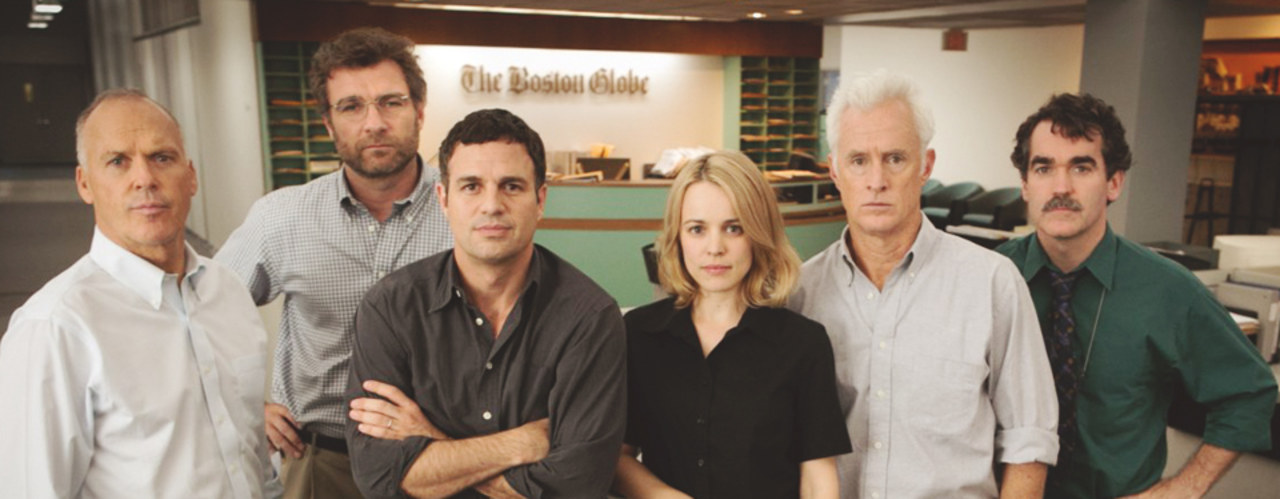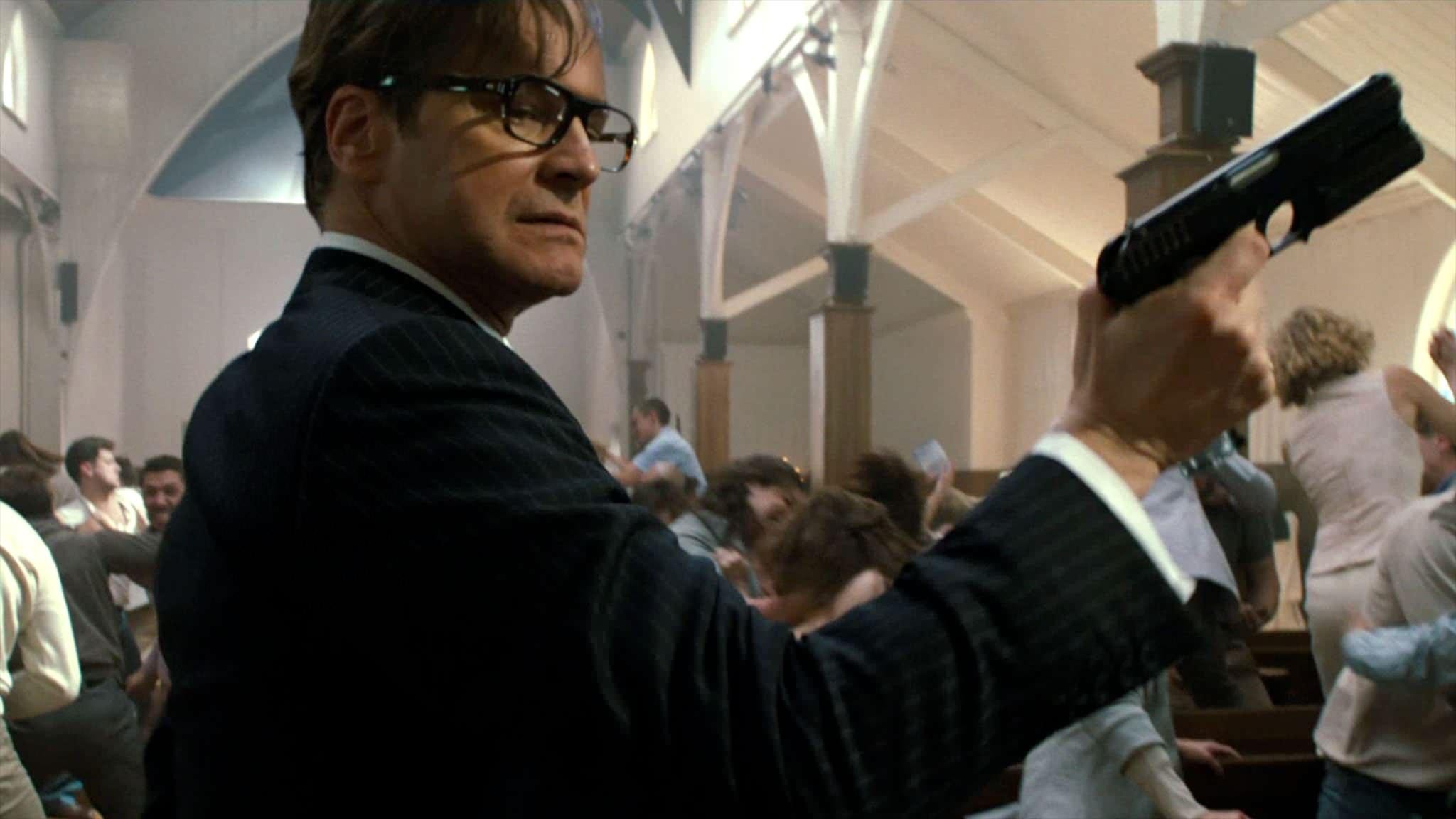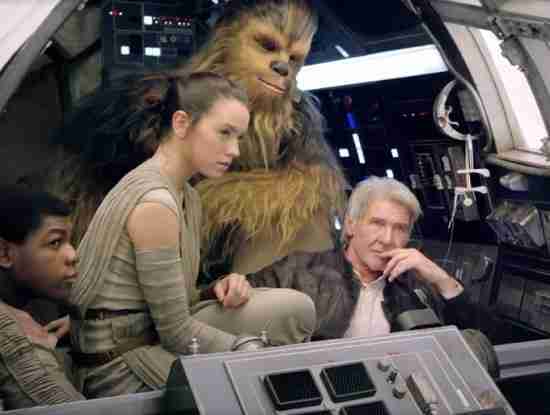Index
Does anyone go out to the movies any more? Ticket prices are through the roof. A snack costs as much as the ticket. You sit through a quarter-hour of trailers before the film even starts, and depending on what you've come to see, those trailers may pique your interest—or quash it. Other filmgoers irritate you with their talking and their mobile devices. The RunPee app notwithstanding, if you get up to go in the middle of the film, you are bound to miss something—and why would you want to miss anything considering what you paid for the ticket?
Certainly with the ability to replicate near-theater quality experience in your own home, why would you want to go to the cinema? Even if your home-entertainment system is far more modest (as is mine), there are still many advantages to watching movies at home. You can watch the film at any time. You can control your audience—you don't even need an audience. You can eat and drink whatever you want, and when nature calls, you just pause the movie. In fact, if you don't follow something on-screen, you can watch it again as many times as you need to until it becomes clear. (I'm ignoring whether the filmmakers were even capable of making it clear in the first place.) And if you own the movie, or are saving it on a recording device, you can watch it again whenever you want.
And yet there is still an allure to seeing a film in the theater. Movies with lots of action and special effects, including 3-D, demand viewing on a big screen, but although many movies can still be seen on your small(er) screen at home without losing too much impact, there is still that sense of an event occurring at which you are a privileged participant.
It's the romantic in me, but even after decades of going to the movies, I still get a shiver when the house lights darken completely and the film begins. I feel part of a collective that has gathered to await the cinematic transformation in the dark, embarking on the journey that may lead to entertainment, education, and, maybe once in a while, enlightenment. Films are a storytelling medium, and many times those stories not only tell us something about the characters we see on the screen, they tell us something about ourselves.
Furthermore, from the quixotic standpoint (look up the adjective "quixotic" to discover its storytelling origin), I go to see a film at the cinema to tell filmmakers that this is the kind of movie I want to see, in essence voting at the box office. Of course my "vote" is a spit in the ocean amidst box-office receipts that amount to millions of dollars—and films are ultimately all about the box office—but I do it anyway.
Not surprisingly, that can be a double-edged sword. When I go to see a film, I try to learn as little about it as possible beforehand so that I can approach it with as little prejudice as possible; this means that I don't read any reviews of the film before I see it (and I don't read any until after I've written my own review), although I will glance at Rotten Tomatoes to check the "Tomatometer" reading for films about which I know very little beforehand or are on the fence about seeing. So, while I have been disappointed, I have also been pleasantly surprised. Again, it's all about that transformation in the dark, and sometimes that transformation is not always for the better—although call me perverse but I do find value in bad movies because they put good movies into relief, as I celebrated with ten bad science-fiction films from the 1950s.
In recent years, and as a rough estimate, I have averaged about a dozen films a year, or one every month. In 2015, though, I more than doubled that. Not that this year seems to be noticeably better for movies than in previous years, but for some reason I had been motivated to see more films in the theaters.
And 2015 had been an eventful year for films: A number of high-profile franchises returned, including Mad Max, Jurassic Park, James Bond, and Star Wars, while old television shows got raided again (The Man from U.N.C.L.E.), and a number of films based on true events dramatized those events after having been filmed previously as documentaries (Everest, Trumbo, The Walk). Fact-based films, both biopics focused on specific individuals (American Sniper, Black Mass, Love & Mercy, Steve Jobs, Trumbo) and films exploring social issues (The Big Short, Selma, Spotlight, Truth), also featured prominently among this year's cinematic offerings, as did features from big-name directors Clint Eastwood (American Sniper), Ridley Scott (The Martian), Steven Spielberg (Bridge of Spies), and Robert Zemeckis (The Walk).

The Spotlight's investigative-reporting team uncovers child molestation among Boston's Catholic priests in the best movie I saw that premiered in 2015. The stellar cast includes Michael Keaton (left) and Mark Ruffalo (third from left.)
Those listings above represent only a fraction of 2015's films—thus the "Somewhat" in the title of this article—and I'd be lying if I said that they do not represent my own preferences and limitations. I've arranged the reviews below roughly by season, which largely reflects when I saw the film in the theater; within that seasonal section, the films are listed alphabetically. You have noticed that I did include a few films with an official release date in 2014, such as "Oscar bait" films released at the end of 2014 that I did not see until early 2015, or else did not gain a wide release (or an American release) until 2015.
The table below outlines my rating scale. A specific note about three-star movies: I consider them to be truly "good" movies in that I feel that I got my money's worth—no small feat given ticket prices—and that I did not feel as if my time was wasted. As I've noted in my baseball writing on this site, this equates to "league-average," which may not be exceptional but does mean the film belongs in the "league," which sometimes can itself be an accomplishment. Whether a three-star film is "disappointing" can depend on the expectations I might have had for it going into see it (Bridge of Spies), but, conversely, it can also indicate that the film was better than I expected to be (Jurassic World). Ultimately, and despite all the "critical analysis" I may bring to a review, it is all subjective—and your mileage will vary.
Oh, and one last note: There are NO SPOILERS in these reviews!
Ratings are from one to five stars:
| Classic. Transcendent filmmaking or storytelling that epitomizes a period, style, or genre. |
|
| Excellent. Superior but not transcendent filmmaking or storytelling. |
|
| Good. Filmmaking or storytelling of average value, or typical of a period, style, or genre. |
|
| Fair. Fundamentally flawed technically and/or artistically, or an interesting failure. |
|
| Poor. Technically inferior and/or artistically bankrupt; no redeeming qualities. |
Winter
Early in the year brings films being trotted through awards season as well as films that may not be expected to be commercial or critical successes. American Sniper and Selma typify the former, but regarding the latter point, I found Blackhat to be unfortunately representative of that point—however, I was most pleasantly surprised by Kingsman: The Secret Service, which was the most fun I've had in a movie theater in a long time.American Sniper (2014)
Is American Sniper the Iraq War equivalent of The Green Berets? Director Clint Eastwood, with screenwriter Jason Holt adapting the autobiography of Chris Kyle, the deadliest sniper in American military history, has made a quiet hagiography of Kyle; moreover, by ascribing the briefest, most basic patriotic motivations to Kyle, and by omitting any mention of why America invaded Iraq in 2003, Eastwood and Holt strip any context from Kyle's four tours of duty there while enabling them to humanize Kyle and his comrades at the expense of untrustworthy, nearly incomprehensible foreigners. In other words, American Sniper wants to extol what Kyle did without suggesting why he did it beyond the constantly invoked rationale of the September 11, 2001, attacks, which don't adequately explain American involvement in Iraq, anyway, much in the same way that The Green Berets lauds the US Special Forces (nicknamed the Green Berets) and their actions in Vietnam without explaining why they are there.
Actually, Eastwood and Holt give Kyle (Bradley Cooper) an opposite, and perhaps unintentionally apposite, number: Mustafa (Sammy Sheik), a sniper seemingly in league with al-Qaeda in Iraq founder Abu Musab al-Zarqawi. Mustafa seems to take as much professional pride in his craft as does Kyle, although his motivations are just implicitly assumed because, well, he's the bad guy, and that's all you need to know other than his actions are designed to presage the climactic showdown. Before that, though, Eastwood and Holt sketch in Kyle's background (because he's the good guy, after all): Taught to shoot by his domineering father, he becomes a Navy SEAL, meets future wife Taya (Sienna Miller), and leaves her pregnant before embarking on his first tour in Iraq, where his first two kills are a woman and boy trying to attack an American patrol. Kyle soon becomes known as "Legend" for his kill record, but furloughs at home find him withdrawn and distant from his young family while his main regret about the war is not being able to save more fellow soldiers.
Cooper is fully invested in his portrayal of Kyle—he is easily the calm, competent center of the narrative—and Eastwood steers that narrative with a skilled, practiced hand. But American Sniper has no depth or dimension—it fails to rise above its surface storytelling, which merely couches age-old war-movie cliché in contemporary clothing, while refusing to provide any meaningful context either for Kyle, who broods and stares with little motivation beyond his patriotic duty, or for the war that incites his patriotic duty. Miller's Taya cannot advance past simple hand-wringing, and the rest of the cast are ciphers. American Sniper targets only the simplest knee-jerk elements.
Blackhat (2015)
Cybercrime can have devastating consequences, but to portray it effectively onscreen, you take essentially two approaches: either a thoughtful thriller involving a battle of wits or an overwrought action overlay involving a battle of bullets and bombs. Guess which approach writer-director Michael Mann and co-writer Morgan Davis Foehl take with Blackhat? If you guessed thoughtful, better check the globetrekking, shootouts, and explosions that fail to disguise a perfunctory cat-and-mouse narrative enacted by ciphers masquerading as characters in a hackneyed crime drama whose plot twists announce themselves like software update notifications minutes before they begin installation.
Mann's opening sequence does feint toward inspiration: At a Chinese nuclear power plant, his camera snakes inside the computer system as attacking malware evades detection and disables the water pumps, triggering a cinematically impressive explosion. Chinese intelligence investigator Chen Dawai (Leehom Wang) decides that he needs American hacking help, so he wangles his former college chum Nick Hathaway (Chris Hemsworth), a brilliant "black hat" (malicious computer hacker) serving time, from prison, with FBI agent Carol Barrett (Viola Davis) in tow. Dawai also needs help from his systems administrator sister Lien (Wei Tang), and when she meets Hathaway—guess where that leads? Tracing a clue to Hong Kong, they encounter (cliché alert!) Russian heavies who, no surprise, blow up Dawai's car, leaving Hathaway and Lien to battle mysterious black hat Kassar (Ritchie Coster) in Jakarta over the even bigger terror plot he's cooking up in Malaysia.
Yes, Mann's geographical puddle-jumping is just smoke and mirrors trying to conceal the truth about Blackhat: It is a simple caper perpetrated by caricature criminals confronted by equally cardboard good guys. Mann wastes Stuart Dryburgh's cinematography with showy hand-held shots while Atticus and Leopold Ross's blatant score tries to keep Blackhat from sagging. Hemsworth goes the cool, steely route to minimal effect while displaying no chemistry whatsoever with listless Wei. Blackhat needs serious debugging.
Kingsman: The Secret Service (2014)
Making the familiar seem fresh is a challenge for genre films including the spy genre, which has seen its hidebound formula recycled endlessly with both sincerity and silliness. But because Kingsman: The Secret Service loves the very genre it's sending up, this crackling, hilarious action tale packs a tremendous wallop. Moreover, director Matthew Vaughn, who with co-writer Jane Goldman based their story loosely on the Dave Gibbons-Mark Millar comic book The Secret Service, displays a rapier touch that excises any dead spots while Colin Firth supplies the credibility and import to make this raucous yarn serious business.
Firth is Harry Hart, a Kingsman, an impeccably dapper but eminently lethal British secret operative, and if you're thinking James Bond, that's the point—up to a point. There are few surprises in Kingsman: Following the death of another Kingsman, Hart and the Kingsmen's leader Chester King (Michael Caine) trace the killing to Richmond Valentine (Samuel L. Jackson), a seemingly harmless billionaire whose philanthropy is of course not beneficent—and naturally he has a comely henchwoman, Gazelle (Sofia Boutella), and her literally killer pair of legs. To replace the slain Kingsman, Hart proffers working-class Eggsy Unwin (Taron Egerton), the son of the slain Kingsman whose anointing comes gift-wrapped in an early scene. Eggsy competes with other candidates including Roxy (Sophie Cookson), all under the tutelage of the Kingmen's taskmaster Merlin (Mark Strong) even as Valentine, like any spy-saga villain, initializes his dastardly scheme for world domination.

Colin Firth is about to unleash holy hell as dapper but deadly British secret agent Harry Hart in Kingsman: The Secret Service, the most fun I've had in a movie theater in a long while.
Under Vaughn's kinetic direction, Kingsman unloads one barrage after another while it gleefully unleashes a shameless stream of references both sly and blatant. The crowning moment has to be Hart's tour de force one-man carnage in a fundamentalist church gone berserk from Valentine's diabolical dabbling, shot with bold disorientation by cinematographer George Richmond and a brilliant deployment of the Lynyrd Skynyrd chestnut "Free Bird" on the soundtrack. But in a bold stroke, Kingsman withholds its shocking break from convention until just the right moment as Firth, Egerton, Strong, and especially Jackson shine through the acrobatics and splashy effects. Brilliantly blending homage and spoof, Kingsman: The Secret Service pumps enough new blood into the spy genre that it will blow your head off.
Selma (2014)
Voting-rights struggles during the Civil Rights era come to a head in Selma, the Alabama city where white resistance to African-Americans' registration efforts was challenged by Nobel Peace Prize laureate Martin Luther King, Jr. (David Oyelowo) and a series of peaceful protest marches. Local authorities met those marches with brutal suppression that shocked the world and, eventually, prompted federal legislation championed by President Lyndon Johnson (Tom Wilkinson). However, that capsule description barely hints at the sustained scope and intensity of director Ava DuVernay's absorbing, affecting docudrama that makes those events from a half-century ago sear with the immediacy of a contemporary news flash.
Paul Webb's thoroughgoing script does present a roster of events and personages, great and small, passing through Selma as if in a historian's dream, although that dream does display dramatic license, such as the seeming conflation of King's being awarded the Nobel Peace Prize with the 1963 Birmingham, Alabama, church bombing that killed four African-American girls; King had been awarded the Prize in 1964. DuVernay and Webb then send King into 1965 Selma to support voting-rights policies spearheaded by the Student Nonviolent Coordinating Committee (SNCC). Once there, though, not only are their efforts rebuffed by determined city leaders ultimately supported by Alabama Governor George Wallace (Tim Roth), but additional complications arise from internecine struggle between SNCC and King's Southern Christian Leadership Conference coterie; meanwhile, the Federal Bureau of Investigation's determination to discredit King through its COINTELPRO counter-intelligence program foments alienation between King and his wife Coretta (Carmen Ejogo).
That domestic thread, while touching, seems superfluous to the roiling social and political currents driving Selma as waves of personal anguish spotlight the events, culminating with "Bloody Sunday," the Selma authorities' violent reaction to the protesters' attempt to march to Montgomery begun by crossing Selma's iconic Edmund Pettus Bridge; DuVernay, with cinematographer Bradford Young's sepia hint, conveys the narrative with brilliant clarity while Jason Moran's score resists the temptation to embellish. Tasked with portraying an icon, Oyelowo makes King human, not symbolic, while Wilkinson, similarly challenged, delivers a sturdy performance. Supporting stars Dylan Baker, Oprah Winfrey, and Martin Sheen provide gilt, but final credit for Selma's triumph belongs to DuVernay's sweeping, empathetic vision.
Prev Next »




Comments powered by CComment